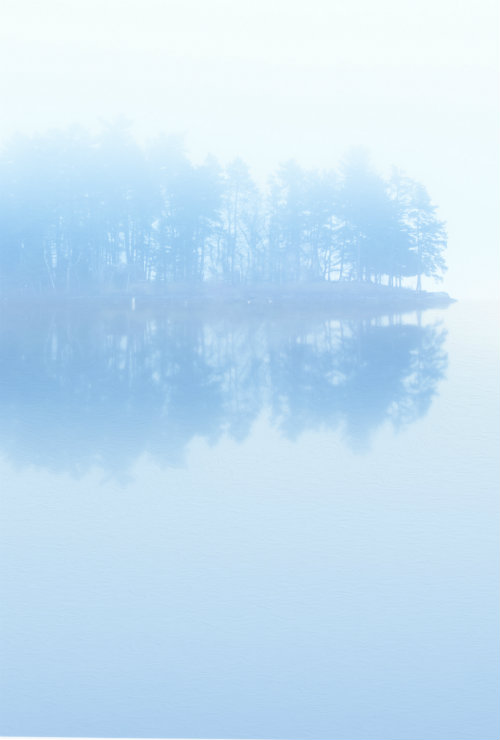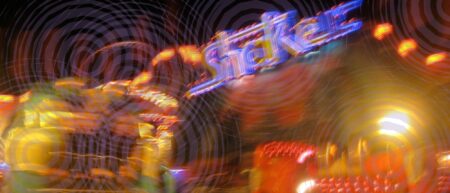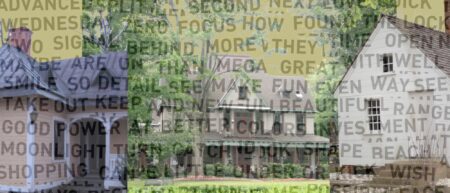
We bought our place in Maine because we were captivated by its view of three bays converging into an expansive stretch of water. Finally I would have a big vista accompanied by the exhilarating sense that anything is possible, including creative mental journeys unimpeded by boundaries and blockages.
Our first month there, as soon as the morning light slipped into the windows, I would jump out of bed, pull on some clothes, and hang binoculars from my neck so I could spy the seals and cormorants on distant rocks, and admire the glowing hues of the sunrise reflected in the water.
But all I saw was fog.
Fog obliterated the horizon, enveloping shore and sky in endless opaque grey. Gone were the sightings I recalled so fondly from previous visits—
Distant mountains looming behind a cobble-and-boulder-strewn beach.
Seagulls and plovers lined up on the flat rock close to shore.
A bald eagle alighting on a fir tree.
Seals lounging on rocky ledges.
Seaweed draping the rocks.
Loons diving.
The bay—
Gone.
All I could see was fog.
It was a deft disappearing act that lasted nearly all day. I was in a house that had glass walls on three sides, but there was nothing to see, and I felt my spirit shrinking with the vista. With peevishness in my voice, I complained to my husband, “We spent all this money on a view, and all I see is fog!”
But as we spent more time in Maine, I came to discover the blessings of sea smoke, which reveals more by showing less. Fog can be like a spotlight illuminating a small section of scenery, while the rest disappears around it. It is akin to the chiaroscuro effect Rembrandt employed so well in his paintings that enables you to see what you wouldn’t ordinarily notice.
Fog can also be a rejuvenating repose from the strenuous activities sunny days foster. On those days, stunning scenery draws me out—to bike, hike, or kayak—like a childhood playmate knocking on the door. But when it’s foggy, I take a deep breath and expand inward, reminisce, and reflect—find the skeletal meaning within the cloak of flesh, the clarity in the confusion.
With nothing to distract me, I sit at my desk and start pulling from my mind strands of nature I’ve experienced recently—an encounter with an elderly fox, or a harrowing kayak ride during an unexpected storm. After untangling these story threads, I twine them with a family memory that spools up from some deep place, unobstructed by the blank scene before me. One spins off the other, with nature the ultimate writing prompt as it morphs into metaphor, revealing the meaning behind the matter, the true stories I need to write while sojourning in Maine after the decline and loss of both my parents and sole sibling within a short span of time.
Our family used to spend our summers in Maine, and one recent misty morning triggered a memory of a similarly enshrouded day many years ago. I was only four or five on a rocky beach enjoying a sweet and chewy cooked mussel I had freshly plucked from its shell and plopped into my mouth. Suddenly I bit down onto something crunchy. Disturbed by this unexpected sensation, I immediately spat out my mouthful. My mother noticed and asked why I was making such a mess. When I told her about the strange crunch inside the mussel, she explained it was a pearl, and we sifted through what I had partially chewed to find a beautiful hard speck of iridescence.
Similarly, I spat out those foggy days with a great deal of distaste the first summer at our Maine house, but now I see what treasures they offer. When the mist hangs over the bay in an impenetrable curtain, I relish the time to sit quietly and inwardly process my recent encounters. I mull over migrating butterflies, or the vastness of the night sky; I remember my brother intently gazing at the woods from his wheelchair, and my mother moved by the rosy beauty of the sun sinking into the bay. What they signify becomes more palpable, substance gives rise to form, and glistening pearls suddenly appear—
Out of the fog.
 Margie Patlak is a freelance science writer with more than two hundred published personal essays and articles featured in such publications as Discover, The Washington Post, and the Los Angeles Times. She recently completed a book of essays on the nature in Maine viewed with both a scientific and spiritual lens. Patlak divides her time between Philadelphia and the Schoodic Peninsula in Maine.
Margie Patlak is a freelance science writer with more than two hundred published personal essays and articles featured in such publications as Discover, The Washington Post, and the Los Angeles Times. She recently completed a book of essays on the nature in Maine viewed with both a scientific and spiritual lens. Patlak divides her time between Philadelphia and the Schoodic Peninsula in Maine.



